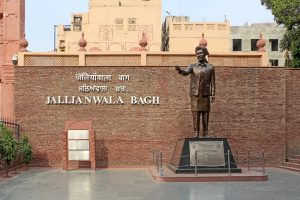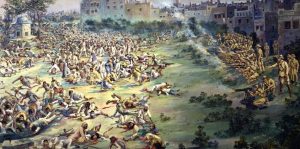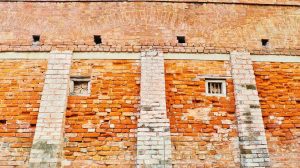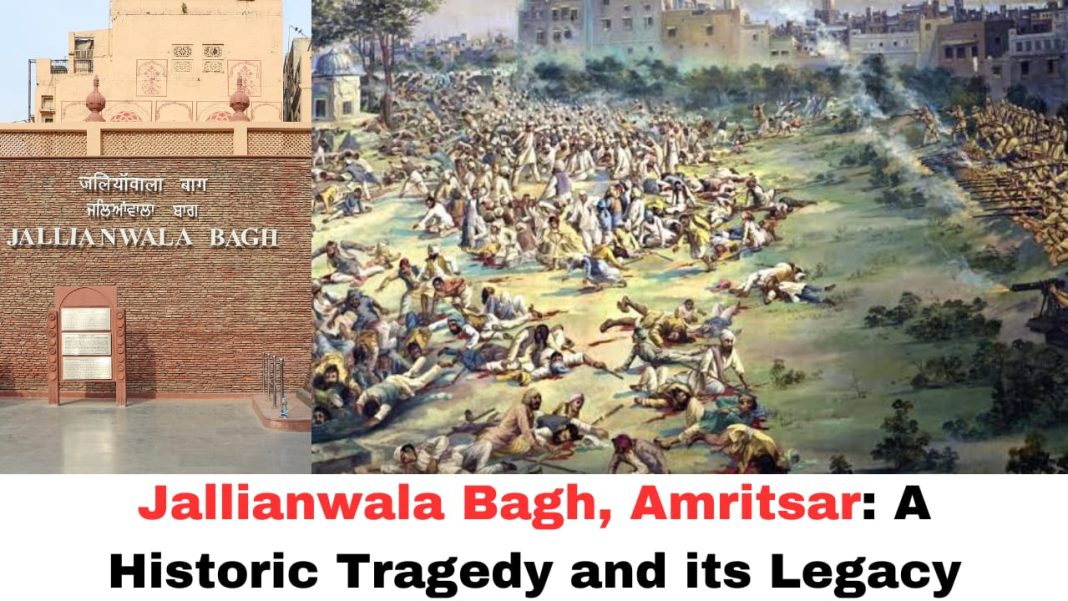Digital News Guru History Desk:
Jallianwala Bagh, located in the heart of Amritsar, Punjab, is one of the most significant and tragic sites in Indian history. This public garden witnessed a brutal massacre on April 13, 1919, during British colonial rule in India. The events that unfolded that fateful day are not just a dark chapter in India’s struggle for independence but also a stark reminder of the oppressive nature of colonial rule. Over time, Jallianwala Bagh has come to symbolize the immense sacrifice made by the Indian people in their fight for freedom.
Historical Context
The early 20th century was a period of significant political unrest in India. The First World War (1914-1918) had a profound impact on the Indian subcontinent. The British colonial rulers, who had long relied on Indian soldiers to fight in their wars, now needed support from India’s vast population to sustain the war effort. In exchange, many Indians hoped that their sacrifices would lead to greater autonomy and political rights. However, by 1919, after the war had ended, the British government showed little interest in granting any real political reforms or freedoms to Indians.
In the wake of the war, the British government passed the repressive Rowlatt Act in March 1919, which allowed the colonial authorities to arrest and detain individuals without trial and to suppress any kind of protest or dissent. This move sparked widespread anger and protests throughout the country, especially in Punjab, a region that had been particularly loyal to the British during the war.

The Jallianwala Bagh Massacre
The Jallianwala Bagh massacre, also known as the Amritsar massacre, occurred on April 13, 1919, when a peaceful gathering of thousands of people was brutally attacked by British troops under the command of General Reginald Dyer.
On that day, a large crowd had gathered at Jallianwala Bagh, a public garden in Amritsar, to protest against the repressive Rowlatt Act and to mourn the death of a popular political leader, Dr. Saifuddin Kitchlew, who had been arrested along with another leader, Dr. Satyapal. The gathering was entirely peaceful, with people coming together to voice their dissent against British colonial rule.
However, General Dyer, who had been stationed in Amritsar to enforce British control, viewed this gathering as an unlawful assembly. Without warning, Dyer and his troops, armed with rifles, entered the park. They took up positions at the entrance and, without any prior notice, began firing at the unarmed civilians. The shooting lasted for about 10 minutes, during which time an estimated 1,650 rounds were fired into the crowd. The people had no means of escape, as the only exit was blocked by the troops.
The massacre left an indelible mark on the collective memory of India. The official British figures recorded around 379 deaths, while Indian sources claim the number was much higher, with estimates ranging from 1,000 to 1,500 killed. The number of wounded was far greater, with thousands suffering severe injuries. The bloodshed at Jallianwala Bagh shocked not only India but also the entire world.
British Response and Public Outcry
The response of the British authorities to the massacre was cold and dismissive. General Dyer was not only unrepentant but also defended his actions in front of the Hunter Committee, which was set up to investigate the massacre. He claimed that the use of force was necessary to restore order and discipline, and he even went so far as to state that had he not fired on the crowd, it would have led to anarchy. Dyer’s callous justification enraged both Indians and British nationals who believed in the moral responsibility of the empire.
While Dyer faced some criticism in the UK, particularly from notable figures like Edwin Montagu (then Secretary of State for India) and Lloyd George, the British government never took significant action against him. Instead, the massacre was largely downplayed, and Dyer was even praised by some sections of the British establishment for his actions.

In India, the massacre became a symbol of British brutality. It fueled anti-colonial sentiments and led to widespread protests across the country. Prominent leaders of the Indian independence movement, such as Mahatma Gandhi, Jawaharlal Nehru, and Subhas Chandra Bose, condemned the massacre in the strongest possible terms, and it became one of the catalysts for the eventual intensification of India’s fight for freedom.
Legacy of Jallianwala Bagh
The Jallianwala Bagh massacre had far-reaching consequences. It left a scar on the psyche of the Indian people, becoming one of the key events that galvanized the Indian independence movement. The massacre also marked a turning point in the relationship between the British and the Indian people. Until then, many Indians had hoped for gradual reforms, but after Jallianwala Bagh, a sense of betrayal and a thirst for revenge took root in many minds.
In 1920, the Non-Cooperation Movement, led by Mahatma Gandhi, gained momentum as a direct response to the massacre and other acts of colonial repression. The movement called for Indians to boycott British goods, institutions, and titles, and it helped unite people from all walks of life in the struggle for independence.
In the years that followed, Jallianwala Bagh became a symbol of the immense suffering and sacrifices made by the Indian people. The site itself was preserved as a memorial to honor those who lost their lives in the massacre. The Jallianwala Bagh Memorial was inaugurated in 1961, with a flame of remembrance and several plaques that bear the names of the martyrs. A memorial, designed by the renowned architect Pierre Jeanneret, now stands at the site, which has become a place of pilgrimage for those wishing to pay their respects.
In 2019, marking the centenary of the massacre, India observed a period of reflection and remembrance. The event was commemorated by officials and the general public, with several leaders paying tribute to the martyrs of Jallianwala Bagh. In the years that followed, calls for an official apology from the British government for the massacre grew stronger, although no formal apology was issued.

Conclusion
Jallianwala Bagh remains a poignant reminder of the brutality of British colonial rule in India. The massacre not only intensified the Indian independence struggle but also symbolized the resilience and courage of those who gave their lives for the freedom of the country. Over a century later, the memory of the massacre continues to live on in the hearts of millions, and the legacy of Jallianwala Bagh serves as a testament to the sacrifices made by countless individuals in the pursuit of justice and liberty.
The event also serves as an enduring reminder of the importance of human rights, non-violence, and the need for political change through peaceful means. Today, as Jallianwala Bagh stands as both a memorial and a symbol, it continues to inspire future generations to reflect on the price of freedom and the enduring spirit of resistance against oppression.
You May Also Read: Malvika Raaj and Pranav Bagga Expecting Their First Child, Malvika Raaj’s Delightful Pregnancy Reveal








